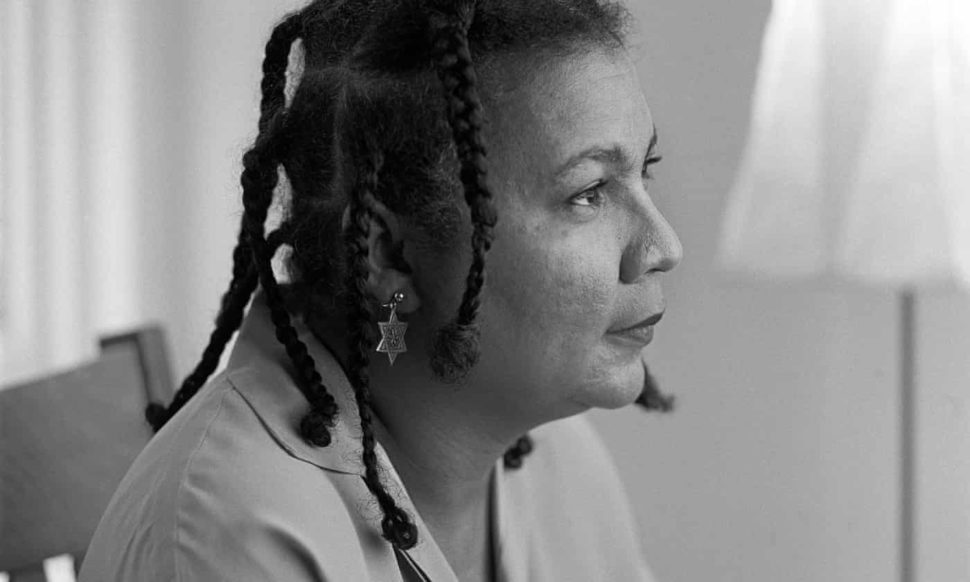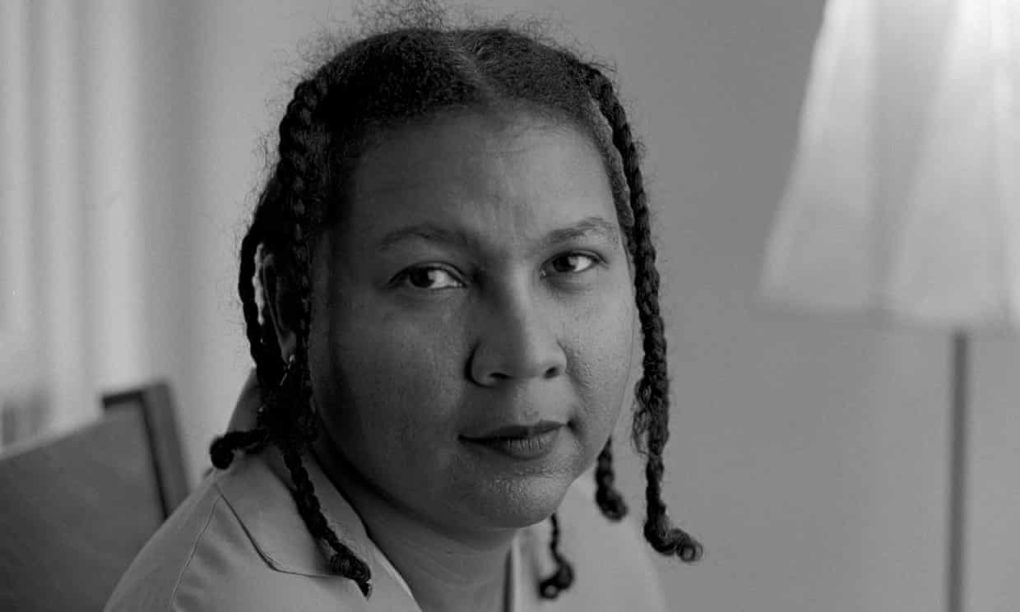bell hooks, an author, visionary, educator and fierce defender of a version of feminism that catered beyond the circle of white middle-class women, died on Wednesday 15 December 2021, age 69.
hooks, who was renowned for her writings on radical love and visions of reimagined life for Black communities globally, wrote essential works that were beloved in both public and academic spheres. True to her spirit of community and legacy, hooks chose her pen name after her grandmother, Bell Sarah Hooks, choosing not to capitalize her name so to not distract from the substance of her work.
Most known for her widely cited collection of groundbreaking books including Ain’t i A Woman Black Women and Feminism (1981), Sisters of the Yam (1993) and All About Love: New Visions (1999) alongside her rhetoric of radical love when dealing with self, healing and activism, hooks represented what severely lacked in academia: a genuine position of care and scholarly prioritization for Black people and their imminent healing.
hooks was commended globally for her contribution to the softening of many a generation. As a black intellectual, she granted Black people from many walks of life permission to reconsider the way they collectively consider their space in the world, including their dealings with feminism, masculinity, black girlhood, healthy depictions of love and a long and deeply felt list of other reconstructed ideals about life.
The diaspora particularly felt the loss of a generous teacher whose writings echo in the minds, works and professional and personal livelihoods of so many.
On December 15, a press release from hooks’ niece Ebony Motley stated that hooks was surrounded by family and loved ones as she passed peacefully at home in Berea, Kentucky, home to the bell hooks center at Berea College from an illness.

While the world processed the immeasurable loss, social media posts spoke loudly of hooks’ wide-ranging legacy. Within several sectors, many expressed their thoughts using quotes and personal stories of growth as a result of hooks’ offerings.
In gratitude for her life, many took to social media to share the impact that hooks had and will surely continue to have in their lives. Here are some ways that the diaspora remembers the acclaimed cultural icon, bell hooks:
Vice President Kamala Harris wrote: “Our nation lost a prolific author, activist, and trailblazer. bell hooks’ profound and positive influence will be with us for generations to come. May she rest in power.”
The multi award-winning author Bernardine Evaristo shared her thoughts: “‘Ain’t I a Woman: Black women and Feminism’ by bell hooks was incredibly validating, mind-expanding & feminist-shaping for me in my 20s, when feminism was still white-dominated. Her influence on generations since has been immeasurable. Her legacy lives on.”
“The brilliance + bravery of bell hooks’ wrote Ava DuVernay while sharing an interview on hooks’ discussion of white supremacy, capitalism and patriarchy.
The bookclub turned literary festival dedicated to elevating and discovering Black women’s literature ‘Well-Read Black Girl’ shared a hooks quote, adding: “We mourn the tremendous loss of bell hooks. A woman of great compassion, courage, & extraordinary intellect. Thank you for always putting your love for Black people in action – for challenging us to imagine a bolder future”
Najma Sharif, writer and editor encapsulates the sentiments of the current moment by sharing the quote from “Art on My Mind” which reads “until we meet again … “the diasporic is an act of will and memory” “
In an article with contemporary writers offering their relationships and tributes to bell hooks and her work, Jay Bernard, UK artist, poet and activist wrote: “For me, bell hooks’ influence can be felt in that she passed on the deceptively simple idea that to love is to think, and to think is to love.”
Reni Eddo-Lodge, bestselling author and journalist wrote, “When I tried to develop my own writing, I read hers’. She embodied everything I wanted to be, writing with a compassion, care and clarity that I aspire to emulate in my own work.”
Afua Hirsch, British journalist and bestselling author, explained that “[A]s a young Black woman, it was bell’s generosity in sharing her own experience of love, sexuality and gender that provided the conduit for her work to reach me in such a personal and direct way.”
Bernice King, the daughter of civil rights leader Dr. Martin Luther King also took to social media to share an one of the many influential quotes from bell hooks’ archive: “I’m talking about a love that is transformative, that challenges us in both our private and our civic lives.”
Since her passing, it is irrefutably true that bell hooks has been more than a healing balm to many who have interacted with her writings, confessions and innumerable legacies. When asked, hooks spoke on “not wanting to die alone – and not wanting to be part of a legacy of Black women scholars who die prematurely, get quoted, excavated, rendered a once-was figure in the archive without being fully honored for their complexity”.
In remembering the depths of hooks’ literary gifts, it is easily witnessed that the diaspora and world at large hold bell hooks dearly in the collective memory.





